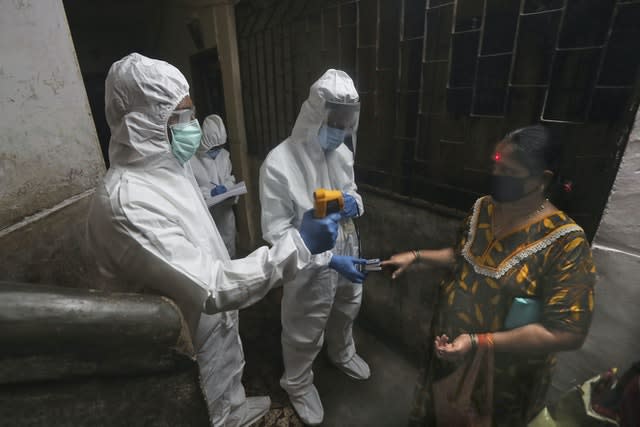India passes one million Covid-19 cases
India has reported one million coronavirus cases, making it third only to the US and Brazil and prompting concerns about its readiness to confront an inevitable surge.
A spike of 34,956 new cases in the past 24 hours took the national total to 1,003,832.
The Health Ministry also reported a record number of 687 deaths for a total of 25,602, adding 635,757 people have recovered and the recovery rate is continuing to improve at 63%.

The milestone comes at a time when several Indian states are imposing focused lockdowns to stem the outbreak amid frantic efforts by local governments to protect the economy.
So far, three states – Maharashtra, Delhi and Tamil Nadu – have accounted for more than half of total cases.
But in India’s vast countryside, which is much less prepared and with weaker health care, the pandemic is clearly growing.
The continuing surge has forced authorities to reinstate lockdowns in some cities and states.
In Bangalore, a city that prides itself as the centre of of Indian technology innovation, the government ordered a week-long lockdown that began on Tuesday evening after the cases surged exponentially.
Bihar, an eastern state with a population of 128 million and a fragile health system, announced a two-week lockdown on Thursday.
In Uttar Pradesh, the most populous state with more than 200 million people, authorities have started placing residents under strict weekend curfews, which will remain in place until the end of the month.
Other local governments are increasingly focusing on smaller lockdowns that shield the economy.
Nearly a dozen states have imposed restrictions on “containment zones” – areas that can be as small as a few houses or a street.

Dr Anant Bhan, a global health researcher, said India is likely to have “a series of peaks” as the infection spread in rural areas.
He pointed out that the capital New Delhi and the financial capital, Mumbai, had already had surges, while infections have now shifted to smaller cities.
India’s response to the virus was initially sluggish and then it bought time by locking down its entire population of 1.4 billion people when Prime Minister Narendra Modi imposed a nationwide lockdown for three weeks on March 24.
The nationwide lockdown, then extended for five more weeks, came at an enormous economic cost amid an unprecedented humanitarian crisis when millions of impoverished migrant workers were forced to return to the countryside due to job losses and hunger.
Aimed at increasing the capacity of the health care system, the lockdown slowed down the virus but it was not enough.
Watch video below
Cases kept increasing while testing remained low and the virus rocketed through the country.
After months of sluggishness, it has now ramped up testing, from a single lab in January to more than 1,200.
More than 300,000 samples are being tested every day.
In some cities, it has also allowed tests without a doctor’s prescription.

 Yahoo News
Yahoo News 
